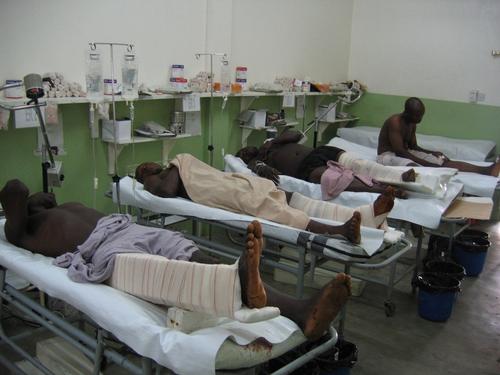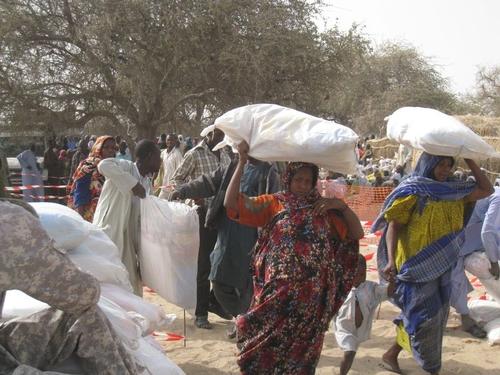As a result of the fighting between Boko Haram and the Nigerian Army at the end of March, around 6,000 people were forced to flee their homes. They arrived in Maiduguri, Borno State’s capital. The authorities have opened a new camp, but there are currently no latrines, no water on site and insufficient shelter. Médecins Sans Frontières (MSF) has been working since 2013 in the Borno State. Our team assessed the needs and initiates emergency activities in this camp.
The authorities have opened a new camp to accommodate the displaced in a large compound previously used as a training centre (“Federal Training Centre”: FTC), in Dalori, a suburb of Maiduguri.
The number of displaced people residing in this large camp is estimated at 6,000, and they are mainly women, children and the elderly. More are on their way.
The first displaced people arrived on 21 March, and the population influx skyrocketed the following weekend. MSF has been working in the Borno State since 2013, and evaluated the camp situation on 23 March.
The Ministry of Health set up a six-bed clinic in the FTC camp, and medical staffs from Bama have started working there. The patients have been suffering predominantly from malaria, gastroenteritis, malnutrition, diarrhoea and vomiting.
In FTC camp, 10% only of the IDP population is under a roof, but in the dilapidated buildings of the previous FTC abandoned since 4 years; and the majority are being forced to sleep under trees. The National Emergency Management Agency (NEMA) of Nigeria is to provide tents. A collective kitchen is being built in the camp, but for now those people with relatives outside the camp rely on them for food. Lack of sanitary facilities remains the major problem and people have to defecate in the open as there are no latrines. There is no water supply, and authorities have launched two boreholes diggings.
Ministry of Health asked MSF to provide support. MSF, in collaboration with NEMA, has started deliveries. Up to 15 000 litres of clean water is being water is being trucked and this will continue until the two boreholes currently being dug are ready. More water and sanitation activities will be launched in the FTC camp, as well as in the other Borno camps.





